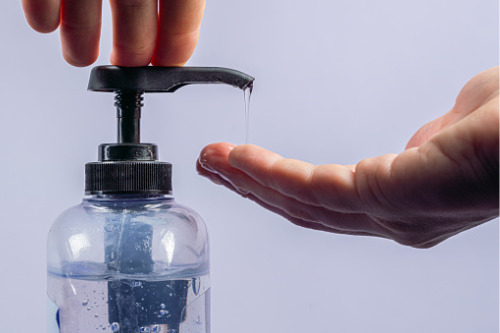

Distilleries, breweries and wineries across Canada have started to pivot away from the production of alcoholic consumer goods in favour of making hand sanitizer to help in the fight against the COVID-19 pandemic.
Since mid-March, numerous Canadian distilleries have altered their production to meet the needs of front-line workers and address widespread shortages in hand sanitizer. Companies leading the way include: Spirit of York distillery in Toronto, ON, The Corby Spirit and Wine Ltd. distillery in Walkerville, ON, the Ironworks Distillery in Lunenburg, NS, and Stumbletown Distillery and Lucky Bastard Distillery in Saskatoon, SK.
When distilleries switch from making products like gin, vodka and rye to making hand sanitizer, they also create a material change in risk, especially when it comes to their environmental exposures. This is potentially problematic in a sector that has historically been quite a reluctant purchaser of environmental insurance coverage.
Karim Jaroudi, environmental specialist at Burns & Wilcox Canada, commented: “Historically, I’ve found distilleries to be a bit reluctant to purchase environmental insurance because of the perceived notion that they’re producing innocuous products. However, anyone who’s been in the industry long enough or has attended an environmental claims training session will know that the release into the environmental of a large quantity of wine, milk [or another innocuous substance] can cause a very costly situation that has to be remediated.”
Distilleries who have chosen not to purchase environmental insurance in the past have typically relied upon extensions and endorsements on their primary property and liability insurance policies to get some protection, but, according to Jaroudi, the coverage purchased in this way is often patchy, sub-limited, and has very little clean-up provision should the insured actually pollute the environment.
“There are two factors at play [as distilleries make the switch to the production of hand sanitizer amid the coronavirus pandemic],” Jaroudi told Insurance Business. “Clients who are currently insured for environmental damage need to talk to their brokers about whether their pivotal change in operation constitutes a material change in risk. If it does, most of environmental insurance wordings have a hard-wired exclusion in them for material change in risk. Therefore, disclosure - which is very big in our industry on a good day - is going to become even more important right now. We would advise those brokers and clients to let their underwriter know of any material changes in risk, so that the underwriter can underwrite these so-called new risks and avoid potential coverage gaps. There will be new operations that weren’t previously perceived by their business plan or their risk management strategy.
“To those companies without environmental insurance coverage that are going from wine and beer production to hand sanitizer, I would suggest that this is a great time to consider or reconsider the environmental insurance proposition with their broker. The coverage would serve to create certainty at a time of uncertainty, and it would serve to create balance sheet protection during this time of transition, because they’re going to be taking on new operational exposures that weren’t previously thought of.”
Distilleries that are making this switch could see different classes of chemicals and materials coming on site. They will also face new challenges around how to store these products, how to handle them safely, how to process them, and how to control the resulting waste stream. While these concepts are certainly not alien to manufacturers, they will throw up a different proposition to their original business plan and risk management strategy.
“The environmental exposure would include things like if there’s a leak and the subsurface is impacted, or there’s a release into the air and there’s air pollution or a fire,” said Jaroudi. “There might also be exposures to others, be it a neighbour or a third-party, again due to these new chemicals, materials, processes, storage practices and waste streams that the insureds were not previously set up for. At a time like this, the message I would stress is: clients – talk to your brokers; and brokers - talk to your underwriters. You’ve got to ensure there’s adequate coverage, there are no coverage gaps, and there’s certainty and robustness around that revised risk management strategy which includes any new business operations.”
